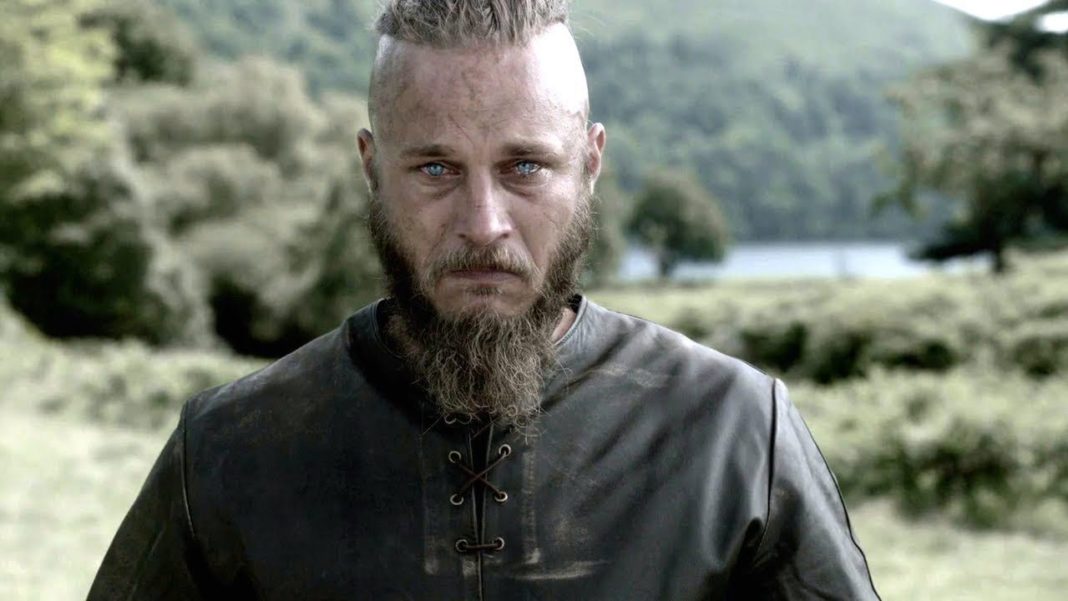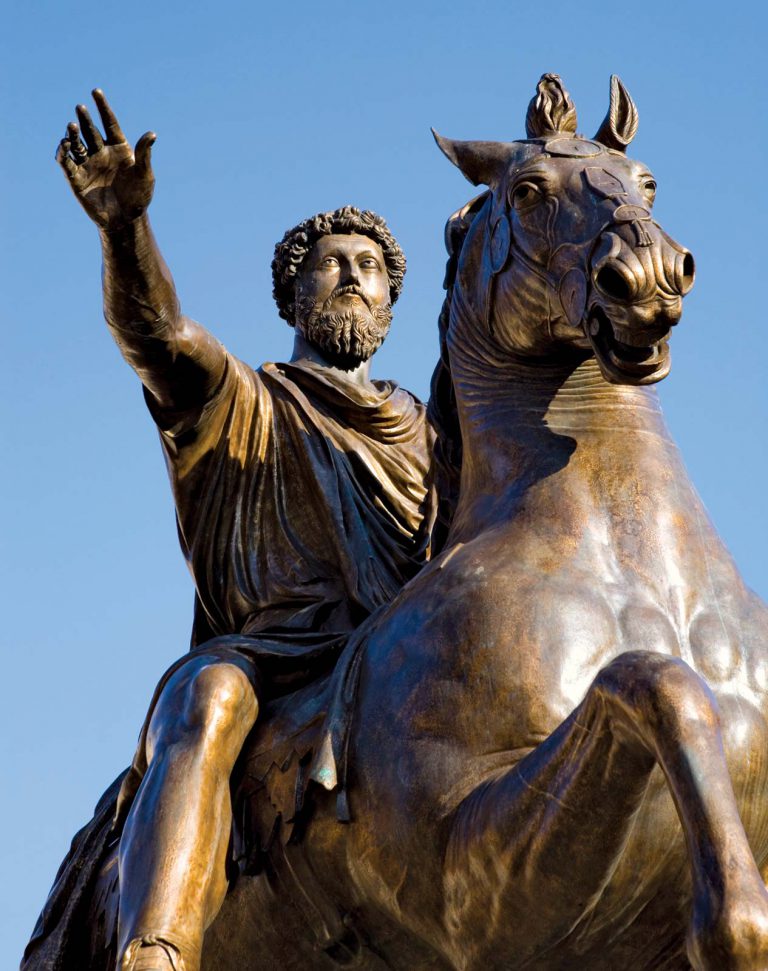
This short article builds upon the recent article I published: Buddhist philosophy – Exploring Dukkha as more than just suffering, as well as a helping from stoic philosophy to complement. The TV series, Vikings by the history channel, follows the adventures of its main protagonist, Ragnar Lothbrock who serves as the model in this article for applying the Buddhist concept of dukkha as dissatisfaction.
I watched the development of this character from the very beginning of the show. Ragnar begins as a lowly farmer with a family just like many others. One day the Viking crop tiller gets the novel idea of sailing to the west. He finally gets permission to go on the adventure he craved, exploring unknown territory across the sea leading an expedition complete with a ship and crew. He comes back from successfully raiding Britain with much plunder to boot. He later challenges the Earl of Kattegat, kills him, and assumes leadership of Kattegat as the new ruler.
To cut a long story short, he eventually becomes the new Danish king, his fame spreads far beyond his lands, fathers many children, makes new enemies as the show progresses but always vanquishes them ensuring his continued enjoyment of high status and he becomes very wealthy from more and ever more plundering. We can easily infer from this respect, that fortune had smiled upon Ragnar as he continuously gains mountains of glory from his various exploits.
I am aware Ragnar did suffer along the way in grasping for his goals, his daughter dies of plague, his cherished friend Athelstan gets murdered, fails a raid on Paris and his own brother, Rollo, betrayed him to fight for Christians. Despite this, Ragnar was living the life every Viking raider dreamed of…
I thought if the Stoic philosopher Seneca met King Ragnar, I can imagine him advising this:
“When you are especially enjoying yourself, be especially on your guard; when everything seems to be peaceful be sure that mischief is not absent but only asleep”1
Is this advice not a golden bullion in itself? There were times in the show where everything was going well, until another rival appears on the scene to challenge Ragnar. How true is it that at one moment there is joy and the next moment is heralded by its interruption. This is the nature of dukkha, as soon as he sought the source of happiness from beyond himself, chasing conditioned things, he subjected himself to the risks that come about playing with fortune.
For example, Athelstan was an English monk from Lindisfarne who was captured by Ragnar and his Vikings. The two had chemistry and eventually become very good friends and as a result Ragnar became very attached to him as he enjoyed his company. When Athelstan was murdered you can imagine what happened when a strong attachment is severed; Ragnar was devastated. What ultimately caused this attachment? Suppose Athelstan was out on a pilgrimage that very day, would the two have met? No, they would not have and the consequences of that would be the history between the two could never have existed. This is coming from the perspective of cause and effect, it is not a moral judgement.
Any attachment to a desired object or person is first-born of sense contact, here is an excerpt from the Buddha:
Buddha: “What do you think, headman? before you saw your wife or heard about her, did you have any desire, attachment, or affection for her?”
Bhadraka the headman: “No, venerable sir.”
Buddha: “Then was it, headman, only when you saw her or heard
about her that this desire, attachment, and affection arose in
you?”
Bhadraka the headman: “Yes venerable sir.”2
Alas, thanks to the ever-present impermanence of all conditioned phenomena, including the capriciousness of Ragnar’s mind, we see in the later TV seasons his ever-growing dissatisfaction with everything the world could and did offer him. Born as a human being, living in an impermanent world where new conditions arise and pass away, he responds to them by always trying to put things right.
“plunged by our blind desires into ventures which will harm us but certainly will never satisfy us; for if we could be satisfied with anything, we should have been satisfied long ago”3
Seneca is here describing the human condition. It’s typical for people to pursue ‘ventures’ because they believe it will make them happy, but, the direct experience of attaining the venture has not yet been realised; this is what makes desires blind or at least myopic. How do we know if a goal will provide us with satisfaction and pleasantries? of course we have to experience it as the way it really is to find out, Buddhism only asks us to be mindful of the possibility it may fail to provide happiness so that we can be wise in gaining insight into the nature of dukkha. If ‘ventures’ could permanently satisfy, then Ragnar would have been totally content after his raid at Lindisfarne and not bother further, thinking ‘I can now die a happy man’. Fully content like a pig in the mud
“Our sense-desires constantly ask for more by way of worldly objects, like a pack of voracious dogs it can never have enough… This disorderly mob of the senses can never reach satiety, not by any amount of sense-objects; they are rather like the sea, which one can go on indefinitely replenishing with water.”4
In the last season featuring Ragnar, where he’s sporting a grey beard and all having aged. We see the results of his growing dissatisfaction: he became less involved in politics, doubted the existence of his gods (all gods for that matter), attempted suicide by hanging and judging by the way he was in the end, the Danish king probably wouldn’t even care if he was slain by a lowly bandit. I could not help but think that Ragnar is a really good example of the craving mind’s tendency to fall back into dissatisfaction. Eventually Ragnar surrendered himself to his enemy, King Aelle of Northumbria knowing he would be executed. It was part of a plan for his sons to avenge him, but it was just out of convenience. In the end he just wanted to die and enter Valhalla having given up any further involvement with the world. Hoping the afterlife would fill the void of his unfulfillment was just another manifestation of the craving mind. It prompted me to a thought experiment, If Ragnar did go to Valhalla and he found out there was another afterlife that is even better, would he crave for that afterlife and pursue it all the while abandoning Valhalla just like he did to Earth?
It had to be asked, should you do everything you sought out to do in your life’s bucket list, what happens then? Would it really be happy ever after? or would you just write up another bucket list?
References:
- Seneca. Letter from a Stoic. Letter XXXI
- Bhikkhu Bodhi. (2005).’ Approaching the dhamma, 3.The Visible Origin And Passing Away Of Suffering’.In the Buddha’s words. Wisdom Publications Inc. pp. 91 -93
- Seneca. Letter from a Stoic. Letter XV
- Conze, E. (1959). ‘Meditation, 3. The progressive steps of meditation, the restraint of the senses’. Buddhist Scriptures. Penguin Books. pp 103

